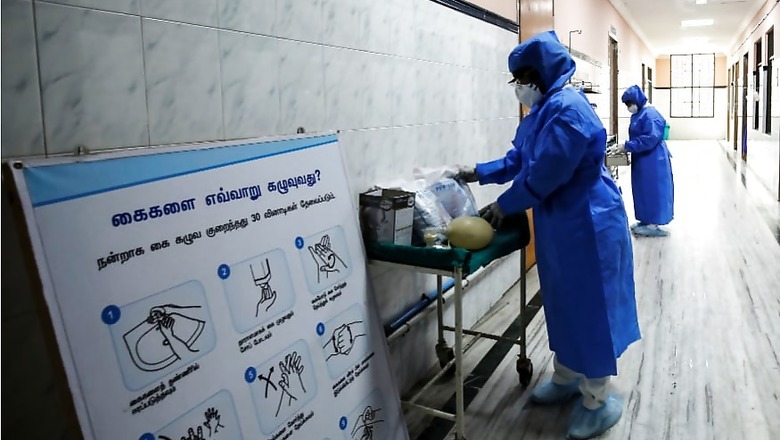
views
New Delhi: Having reported local transmission among families and acquaintances, India has reached stage two of the coronavirus outbreak, government scientists have said. Now, the government has begun testing random samples of influenza-like illnesses and pneumonia-like illnesses of those without travel history to check if community transmission of coronavirus has taken place.
Community transmission means that the source of the original transmission among a set of people in a particular community is hard to find whereas the source is known during a local transmission.
Between February 15 and February 29, the Indian Council of Medical Research (ICMR) tested 150 samples of influenza-like illness and severe acute respiratory illness to ensure coronavirus has not infected those without a history of travelling abroad.
So far, none of the samples have tested positive for Covid-19.
Under the current testing protocols released by ICMR, only those with history of travel to high-risk countries affected by Covid-19 and those who came in contact with persons testing positive were asked to be quarantined for 14 days. Among them, only those who are showing symptoms of Covid-19 infection are being tested.
As of now, 51 laboratories across 27 states are tasked with testing for coronavirus samples. These viral research and diagnostic laboratories also get samples of patients who develop influenza-like illness or those displaying severe pneumonia symptoms.
“It is important to keep an eye to ensure we are not missing out on community transmission. The samples we tested in February were evenly distributed. We did it in 13 places because in February, our testing capacity was only functional at 13 labs in the country,” said Dr Nivedita Gupta, scientist, Epidemiology and Communicable Diseases Division.
“Now in 51 labs, we have a plan to test samples every week. From March 15 we will again have a repeat of 20 samples for 31 labs that are functional and periodic sampling and testing across 51 labs,” she said. “We will continuously test them to document that we do not have any community transmission. If we find a positive case, our strategy will have to be completely different.”
According to Gupta, this is an epidemiologically relevant method to pick up community transmission. This method was also used to pick up Zia cases in Ahmadabad and Raipur, she told News18.com
Stages of Covid-19 outbreak
Dr Balram Bhargava, ICMR director-general, said there are three stages of the disease. “Stage one is marked by imported cases and we have got that in India. In stage two, there is local transmission, which too we have demonstrated to have happened here,” he said.
Bhargava gave the example of a family in Agra where members developed symptoms after one of their relatives in Delhi's Mayur Vihar, the city’s index patient, paid them a visit upon his return from Italy, a severely affected country. In Kerala as well, the family that did not disclose its travel history had transmitted the disease to their members, thus showing local transmission.
“Up till stage two, we are not that much worried and we are in stage two. Then comes stage three where there is community transmission. Certain communities and large areas will be affected and then there is stage four, which is an epidemic stage. China and Italy put a lockdown at that stage. That is the broad understanding. Once community transmission occurs, the graph of cases peaks,” said Bhargava.




















Comments
0 comment